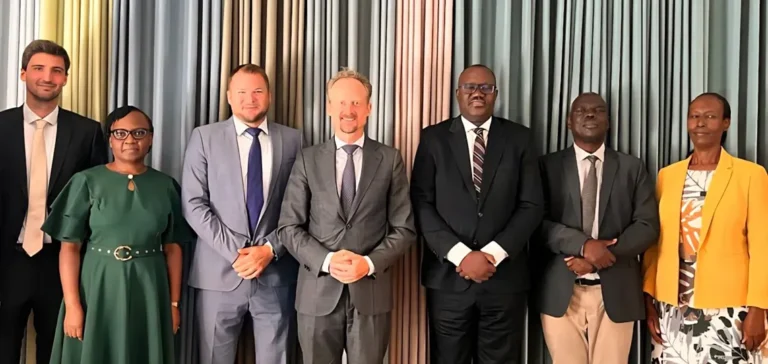Uganda has opened a diplomatic mission in Vienna, the Austrian capital, to support the development of its nuclear sector and facilitate exchanges with the International Atomic Energy Agency (IAEA). This initiative aims to establish direct access to technical resources and international expertise, as the country plans to generate electricity from its own uranium reserves.
The new mission, under the authority of Permanent Secretary for Foreign Affairs Vincent Bagiire, is intended to allow better coordination with the IAEA and access to training programmes, regulatory assistance, and commercial cooperation. Stephen Mubiru, Ambassador to Germany and accredited to Austria, accompanied the Ugandan delegation, along with Deputy Head Dora Kutesa and other senior government officials.
A strategic relay for nuclear development
The diplomatic presence in Vienna comes in a context of rationalising the external network, as several Ugandan embassies have been considered inactive or underfunded. Despite planned reductions, the Vienna mission is given priority status due to its importance for energy cooperation and access to the civil nuclear industry markets. The IAEA centralises most training, technical advice, and conformity validations needed to support states in their nuclear projects.
Discussions will focus on mobilising partnerships, regulatory harmonisation, and planning safety evaluations. This approach is intended to facilitate the organisation of expert missions, the transfer of skills, and the deployment of technical solutions tailored to the Ugandan context. The government has identified diversification of the energy mix as a priority to meet rising domestic demand and reduce dependence on hydropower.
Prospects for international partnerships
The new mission will also be responsible for leading discussions on structuring future commercial partnerships in the nuclear sector. Uganda intends to draw on international expertise to support the design of its infrastructure, train national operators, and ensure compliance with global safety standards. The Austrian capital remains a hub for exchanges on energy technologies, offering states privileged access to key players in the sector.
The choice of Vienna reflects Kampala’s intention to embed nuclear development within a dynamic of multilateral cooperation and the search for commercial partners. This strategy goes hand in hand with an adaptation of diplomatic resources, in a context of foreign service reform and a focus on results for overseas missions.






















